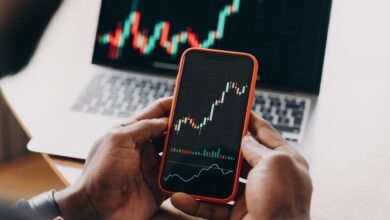Libya has a difficult investment environment

The Department of State published the 2024 Investment Climate Statements (ICS) last Wednesday 17 July. These reports describe the investment climates of more than 160 countries and economies, aimed at helping U.S. companies make informed decisions about doing business overseas.
The ICS revealed that Libya, despite the high potential for domestic and foreign investment in Libya due to its reconstruction needs, unmet consumer demand, and rich natural resources, the country still faces a difficult investment environment.
It says that the Government of National Unity (GNU), which came to power in 2021, has shown an interest in attracting more foreign investment and collaborating with foreign companies. However, the country’s foreign investment prospects remain hindered by an unclear bureaucracy, complications resulting from the division of state institutions, burdensome regulations, widespread corruption in public administration, and threats from armed groups. In addition, the Libyan government has a long track record of not complying with contractual obligations and timely payments. Libya’s oil and gas, electricity, and infrastructure sectors have historically received the most significant investment.
Following years of civil unrest and armed conflict, Libya’s warring parties signed a ceasefire in 2020 that paved the way for a United Nations-facilitated political process that resulted in the country’s first unified national government since 2014.
Following the postponement of elections originally scheduled for December 2021, the Government of National Unity (GNU) has continued to govern the country on an interim basis, although its influence was limited outside of the northwest.
The self-styled “Libyan National Army” maintained de facto control in the south and east. In February 2023, the then UN Special Representative for the Secretary General (SRSG) Abdoulaye Bathily launched a new initiative aimed at reaching political consensus on a credible path to elections.
Libya holds Africa’s largest (and the world’s ninth largest) proven oil reserves
Libya holds Africa’s largest (and the world’s ninth largest) proven oil reserves and Africa’s fifth largest gas reserves. Hydrocarbon exports contribute approximately 97 percent of government revenue. Libya produces an average of 1.2 million barrels per day. Oil production is occasionally subject to interruptions by groups demanding better services or political concessions. For instance, a group of southern protestors closed Sharara oil field, Libya’s largest, in January 2024.
NOC
The National Oil Corporation (NOC), an independent, apolitical institution, continues to lay the groundwork for the long-term development and stabilization of the energy sector. The Ministry of Oil and Gas has attempted to exert political control over the NOC, at times complicating matters for companies working in the sector.
Libya’s Investment Law of 2010
Libya’s Investment Law of 2010 is the main legal framework for promoting foreign direct investment (FDI). This law, passed before the 2011 revolution that overthrew the Qaddafi regime, removed many FDI restrictions and offered various incentives to stimulate private investment. No significant laws related to investment have been enacted since.
Corruption is deeply rooted and prevalent
According to Transparency International and numerous well-informed local contacts, corruption is deeply rooted in Libya and is prevalent at all levels of public administration. The lack of clear and accountable mechanisms for managing oil reserves and revenues, awarding government contracts, and implementing often vague regulations continue to give government officials ample opportunities for rent-seeking and corrupt activities.
Continue Reading
Source link





